
Very few athletes have what it takes to endure a Dakar rally. It’s a 14-day, 5,000-kilometer (3,100-mile) trek through the punishing Saudi Arabian desert, purpose-built to test the physical and psychological limits of anyone who dares to attempt it. Italian rally driver Rebecca Busi is one of the rare athletes with the endurance, skill, and determination to complete the toughest off-road race in the world in 2024. We spoke to her about how she prepared, her potentially deadly encounter with another vehicle, and what kept her going all the way to the finish line.
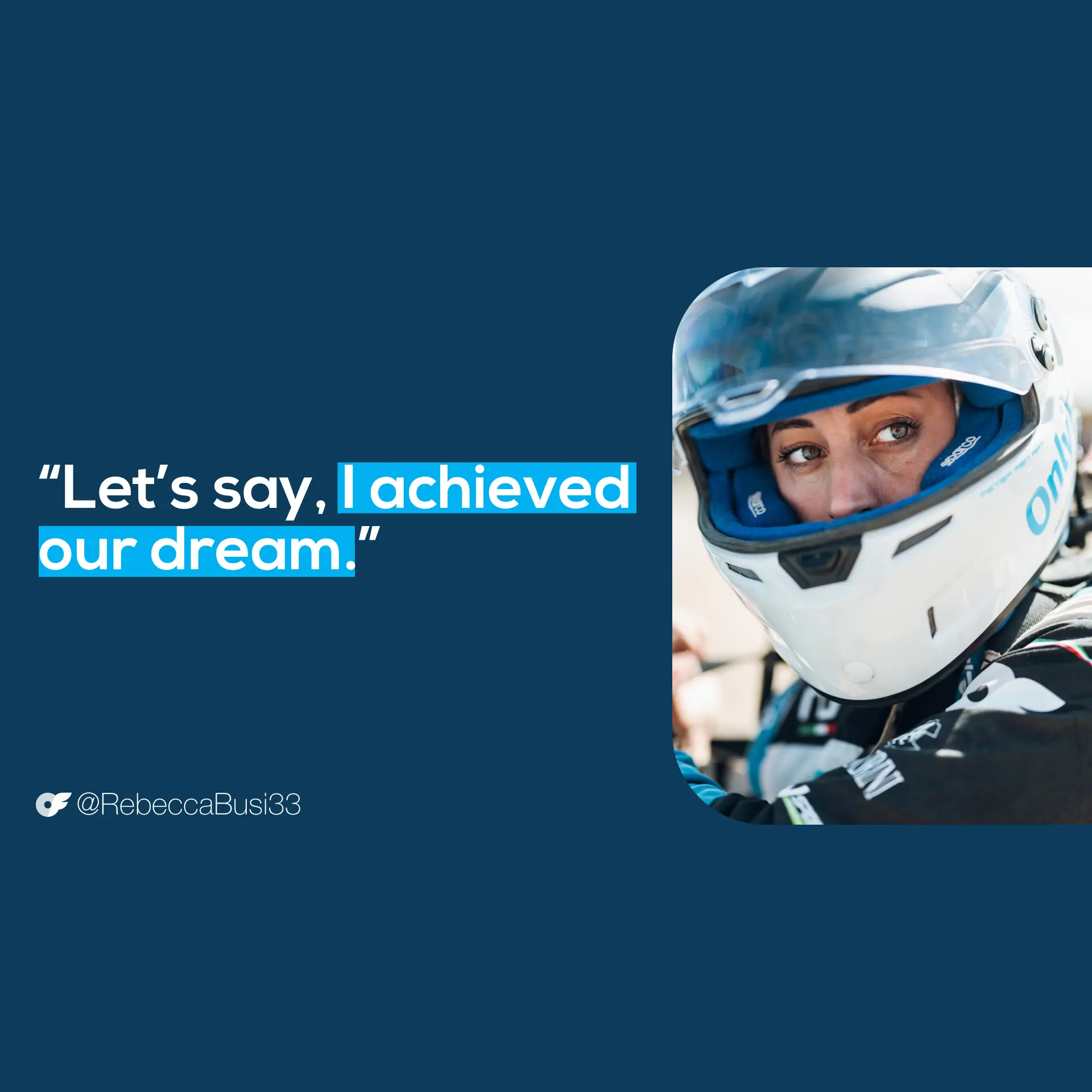
What kind of racing do you do?
I'm a rally raid driver, which is a very specific area of rally. Basically, our rallies are very long – at least five days – and Dakar is double.
This year, there were 13 stages (Stage 0–Stage 12), and we basically raced through a lot of kilometers and a lot of different landscapes.
It was very challenging and adventurous, I would say.
What inspired you to become a rally driver?
It was complicated. I learned the discipline from my father because he was a bike racer, and he did three Pharaon rallies. And Dakar was his dream.
I brought him to Dakar for the first time in 2022… and let's say, I achieved our dream.
What makes Dakar so challenging?
Dakar wants to cut the legs off [racers] when it can. They'll put through stony areas, causing you to break the car.
Then you go to the dunes, and you get stuck. And the next day, you go back to the stones and break the car again.
They want to break you: the car, physically, mentally, whatever. It's the toughest race in the world, and they make sure you understand that.
What other gear do you bring with you?
We wear fireproof gear underneath the race suit, and a fireproof race suit.
Hydration is very important. Usually, I prefer to use a salt pill because they don't have any taste, and in the dunes, I usually feel pretty [nauseous].
Even in Abu Dhabi, I had seasickness on the first day, which is normal in the dunes. So I avoid things that have a flavor. But you need to eat and drink a lot. We carry three liters of water in a CamelBak that we drink throughout the day.
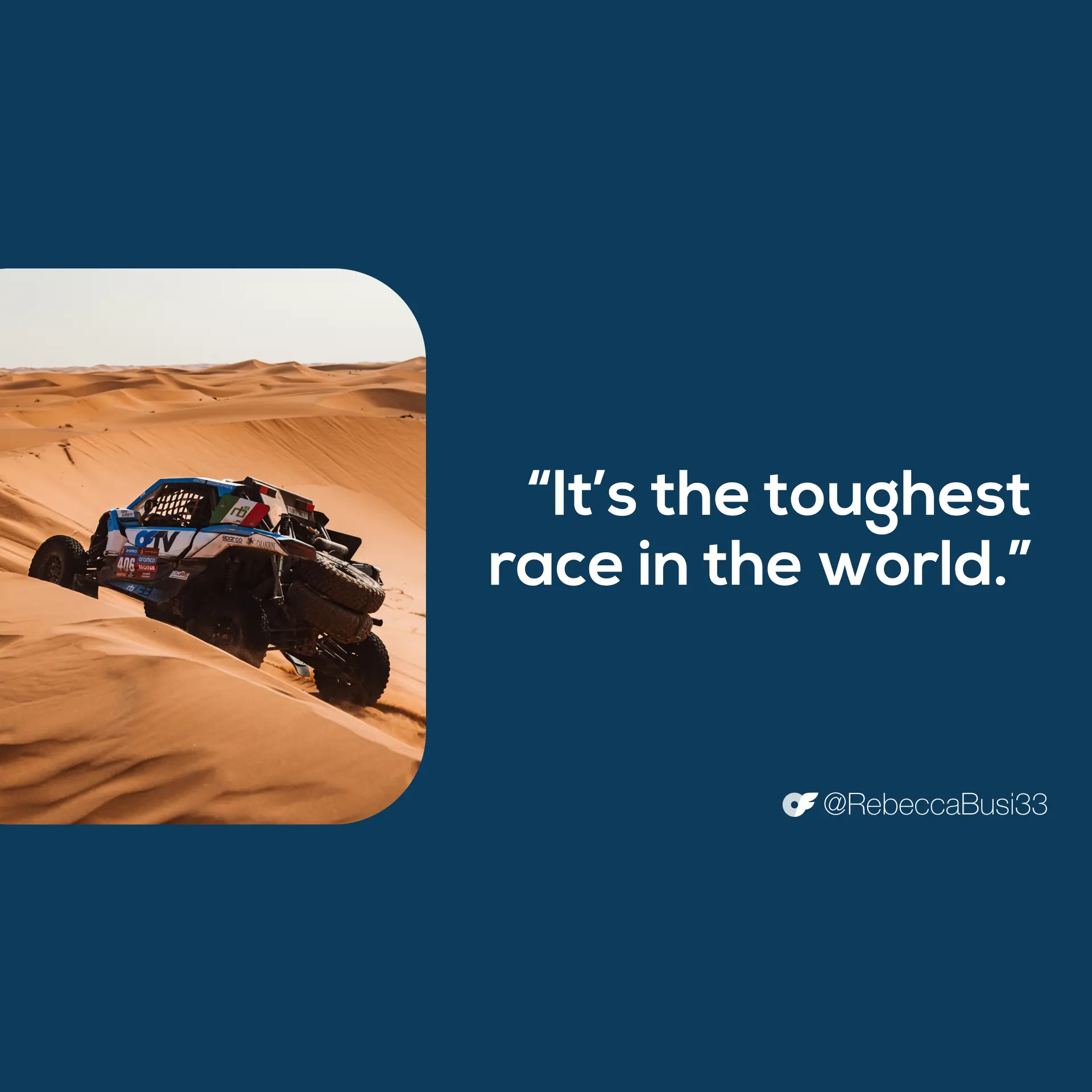
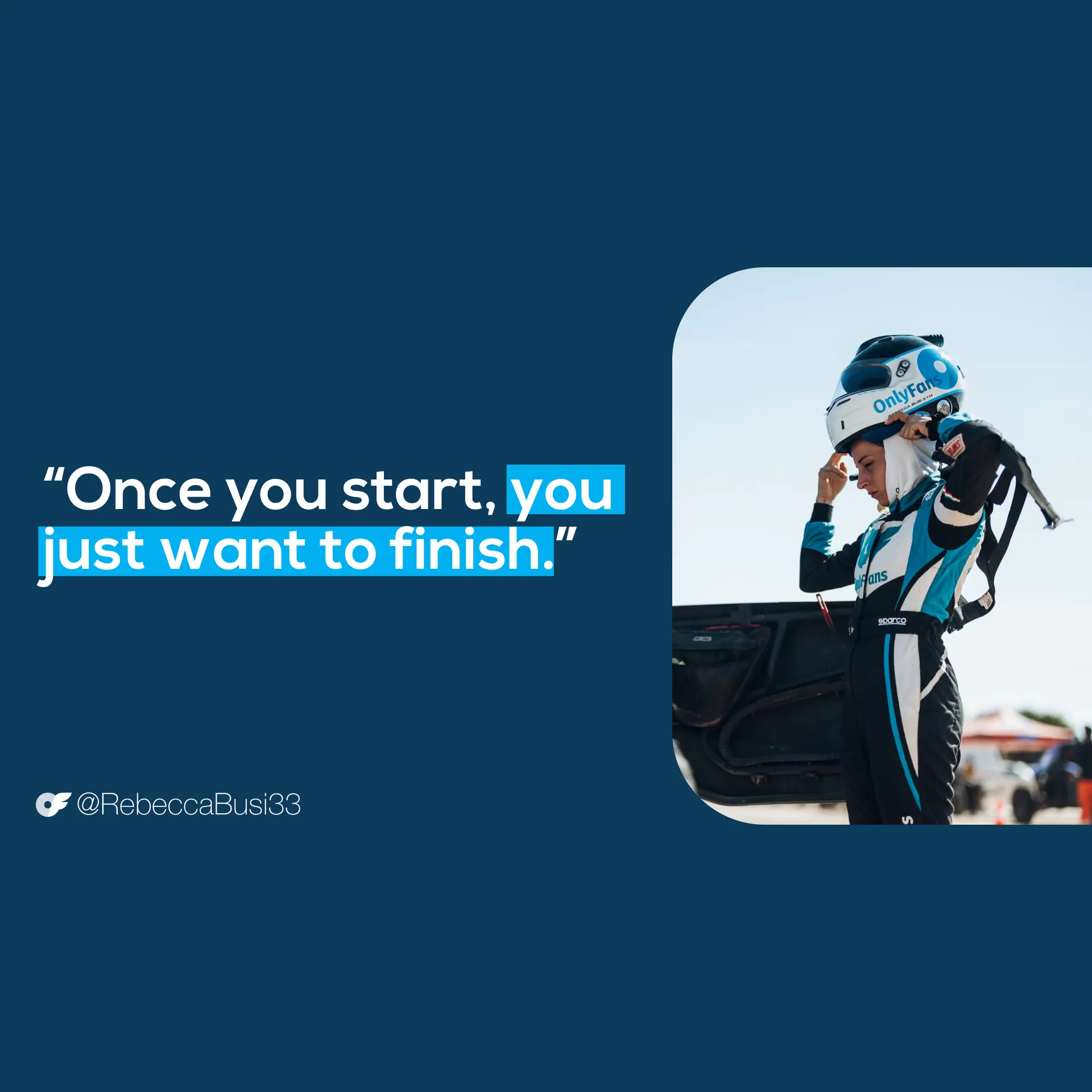
How do you mentally prepare Dakar's intensity?
This year, I had the chance to be trained by a psychologist—a mental coach. And we trained on concentration most of the time, and ways to build a very good routine to help me stay focused and centered on the race.
Every morning, every night, it is the same thing [during a rally], and he helped me a lot. Because you enter this mental state where you are always doing the same things.
It's like being in the military!
What’s going through your mind at the starting line?
Before Dakar, I was very anxious… scared that I wouldn't be ready enough, that I didn't work out enough. And all the fears come out before starting [the race].
But once you start, you just want to finish. You just want to complete your work.
Tell us about Stage 3, is it the hardest part of Dakar?
Yes, definitely.
I would say that when it's only one type of terrain, it's easier, because the stage is going to be almost all the same.
But when it's mixed – and you have a lot of rocky areas, and then the dunes start, and then the rocks, and then the dunes again – it's kind of complicated.
The middle part, where the terrain is changing, is a very tricky one. Because it's not sand, it's not rocks. You can break everything, basically.
The 48-Hour Chrono Stage... Why is it so challenging?
The challenging thing is the concentration. Because the first 100 kilometers in the dunes are okay—you feel okay.
But then it becomes a mental game where everything looks the same, and you cannot really see the end of the stage. You start to commit some mistakes, and when you lose concentration, you get stuck. It's very challenging.
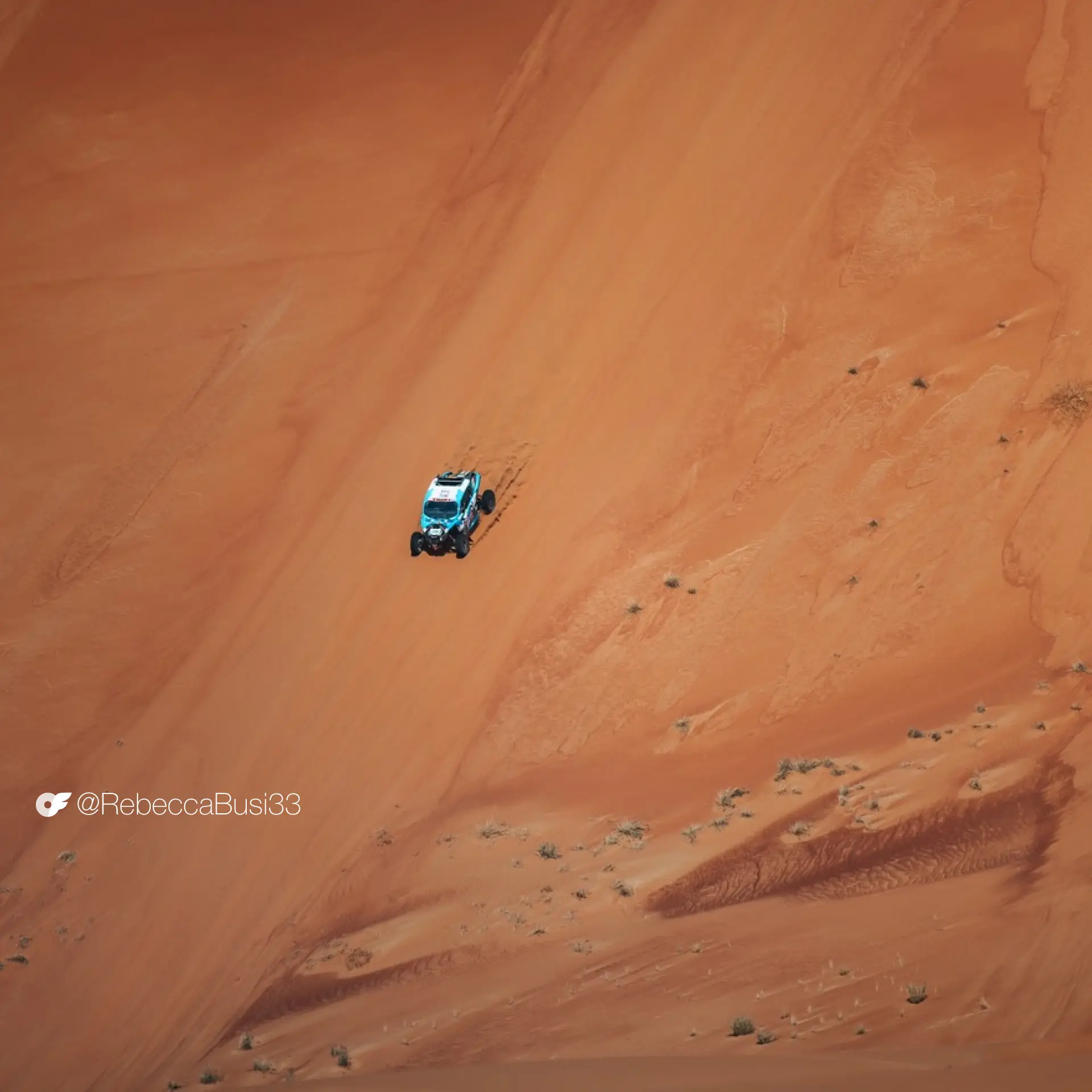
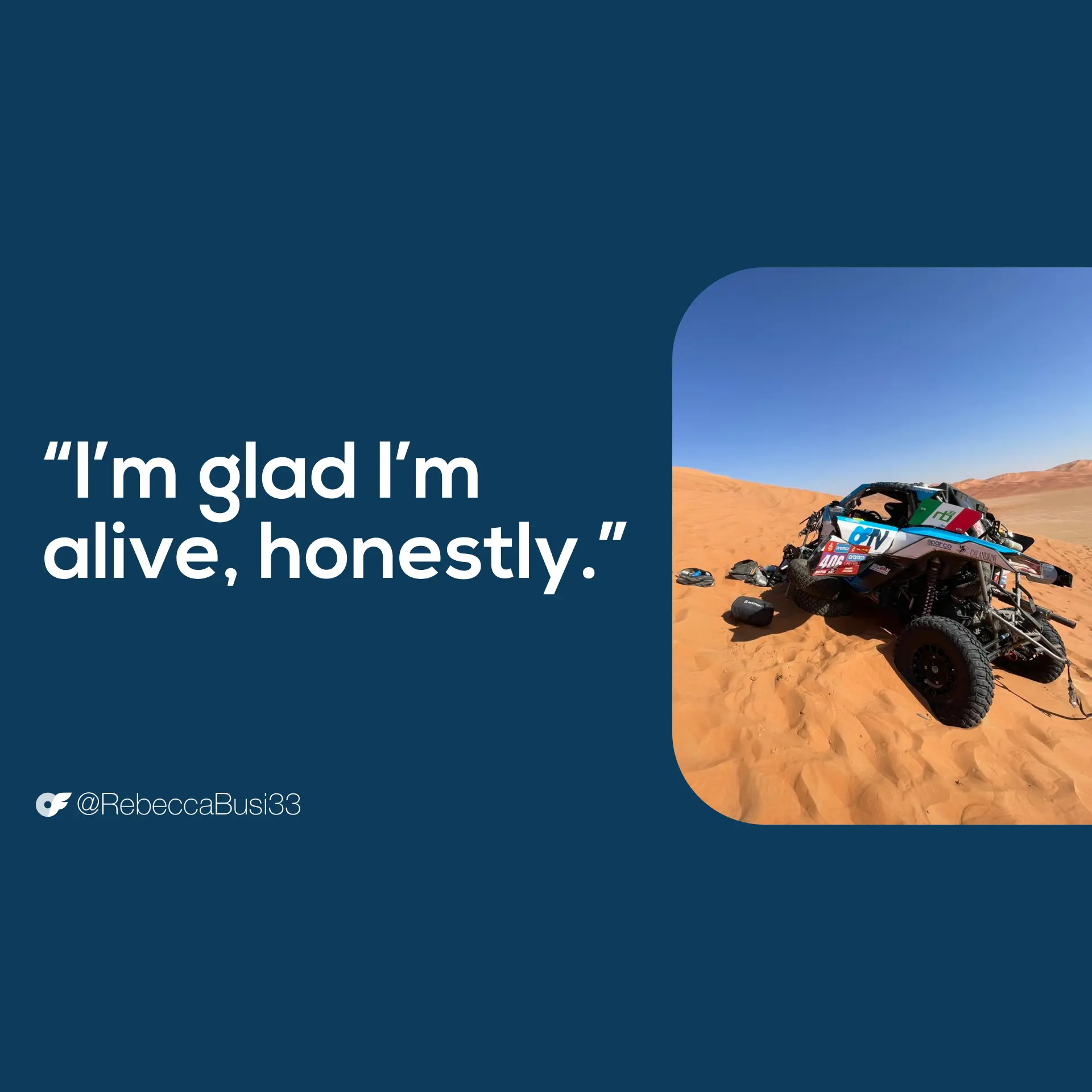
Tell us about your crash during the Chrono Stage.
So, the first day of the Chrono Stage went pretty well. We were in a very good position, and we started pretty early in the morning.
After one hour, we passed a car – a T1 (the category bigger than mine) – which got stuck in the dunes.
To get out of this position, [the driver of the T1] decided to not wait for us to pass. Instead, he went in the opposite direction of the race, which is actually not a thing that you should do.
And he took out our wheel, like completely. He went down to the dunes, and left us stuck in 50 meter dunes. And this guy just drove away.
It was pretty shitty, that moment. I'm glad I'm alive, honestly.
They airdropped one part that we needed to make the repair. Actually, it was the last part we were missing to make the car go, and they dropped it from a helicopter, like Amazon.
Do you ever feel like giving up?
Honestly, no. I worked so much and so hard to get here.
We heard you had a secret weapon this year. What was it?
The first Dakar I [competed in], I was without my mother and it was very, very bad. It had very big consequences over my performance, and over my body.
I lost a lot of weight. I couldn't keep up my concentration and speed during the day. And, first of all, it's dangerous.
But aside from that, you understand that you are screwing up all your work because you are not eating enough.
So this year, I called my mother and she cooked for me. It should be a race violation to have an Italian to cook, but I was pretty thankful!
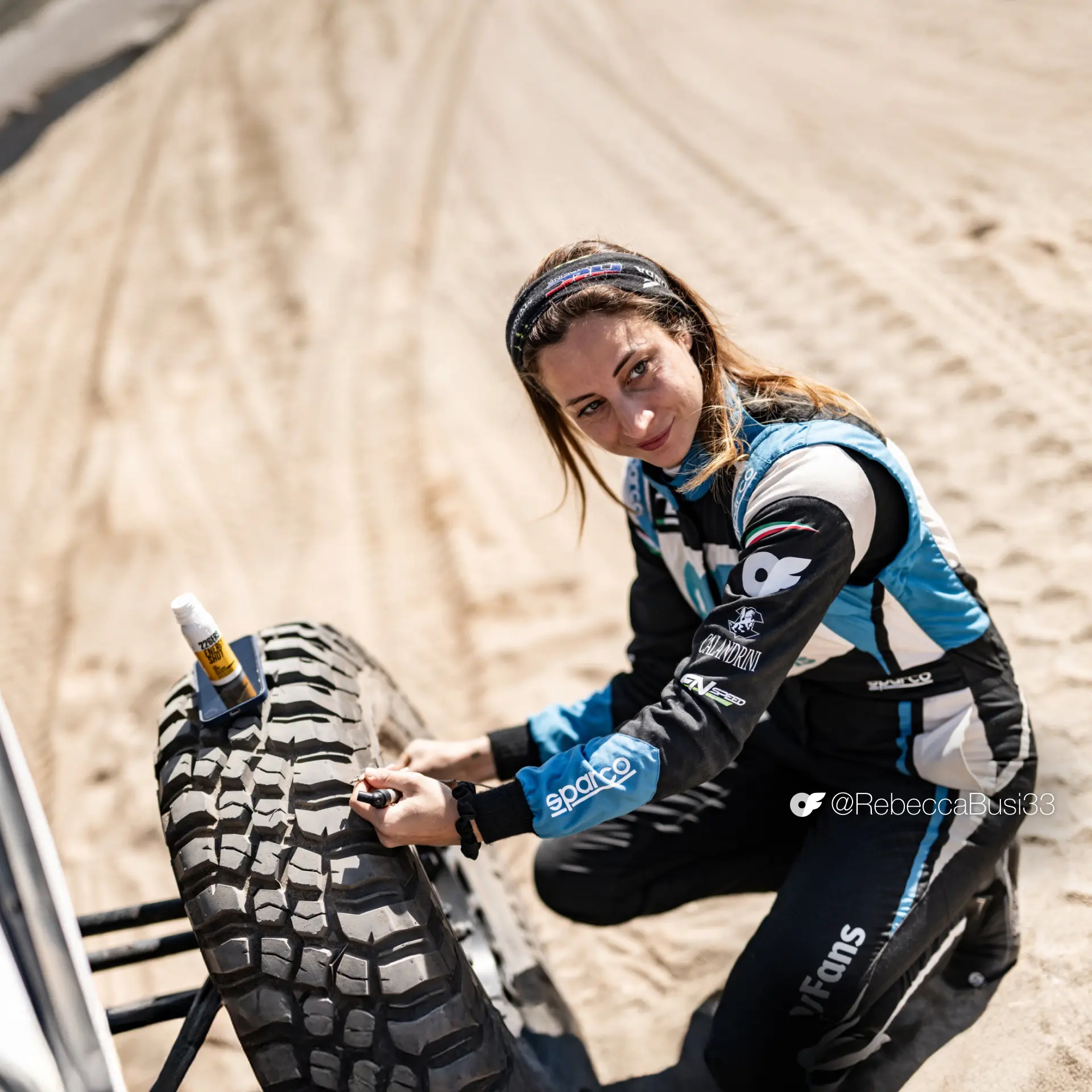
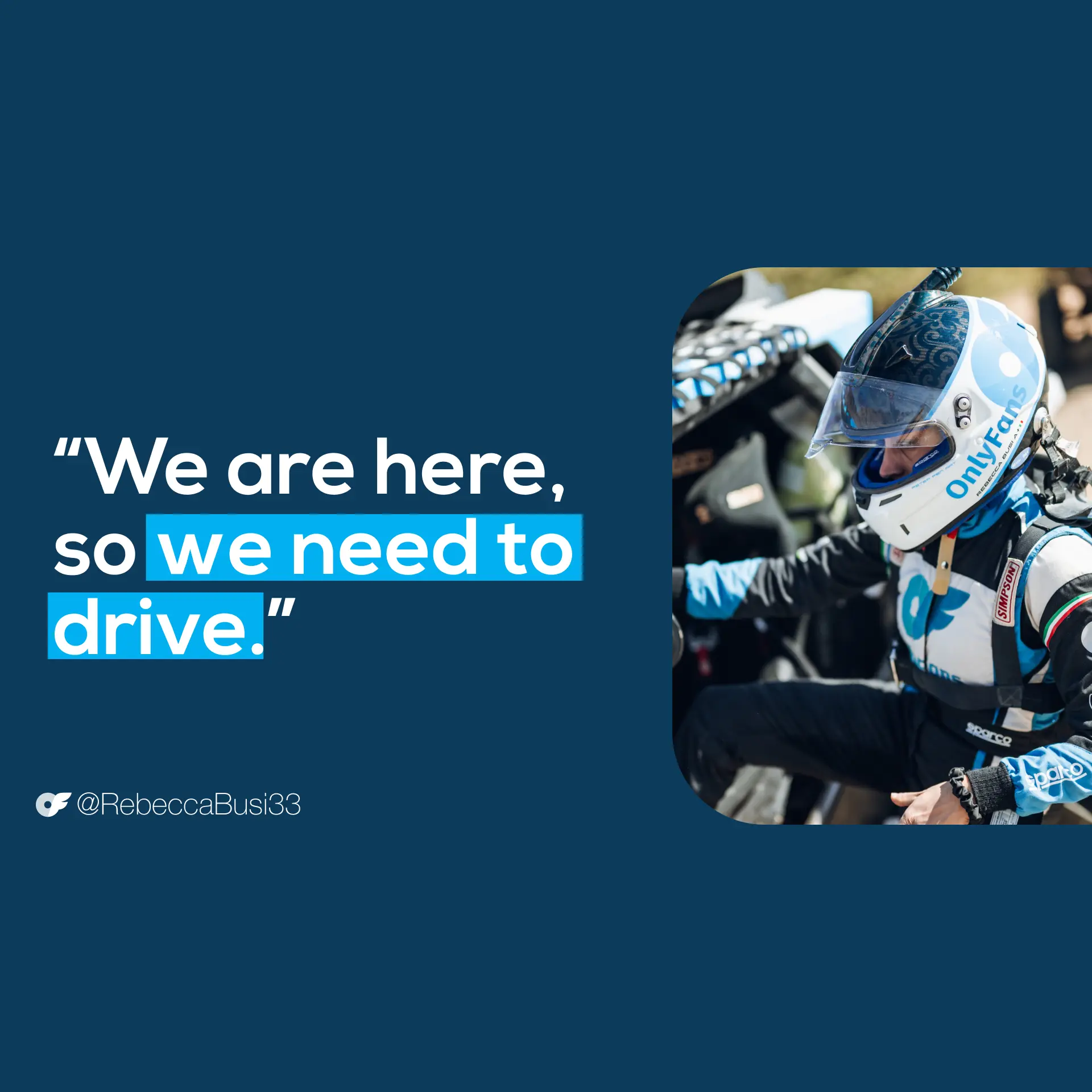
When you get to Stage 12, the last part of Dakar, what's going through your mind?
I was scared I’d mess it up. I was really scared, so I was driving slowly.
I was taking the first 50 kilometers very slowly, not comfortable in myself as a driver, because I was just scared of what would happen if I encountered a problem.
And it took me some kilometers to calm down and to say,
"Okay—We are here, so we need to drive. We cannot give way to anxiety, or to fear."
I worked with the mental coach for a month on this, and this is exactly what happened in the last stage.
What have you learned about yourself this year?
I will keep fighting until I achieve what I want to achieve. And now it's very clear: I really understand that I want to win.
It's what every single driver wants, to win. So if we don't think we can win, we don't race.
Do you keep in touch with your OnlyFans subscribers while racing?
At every race, I send a couple of messages about the race, about how it went or what problem we had. And the OnlyFans community actually asks me a lot of questions.
Like, they're very smart!
For example, a lot of guys ask me what my strategy is, or if it is normal to get seasickness. They are really interested in the outcome of the races, and how to prepare for them.
It's a pretty great community.
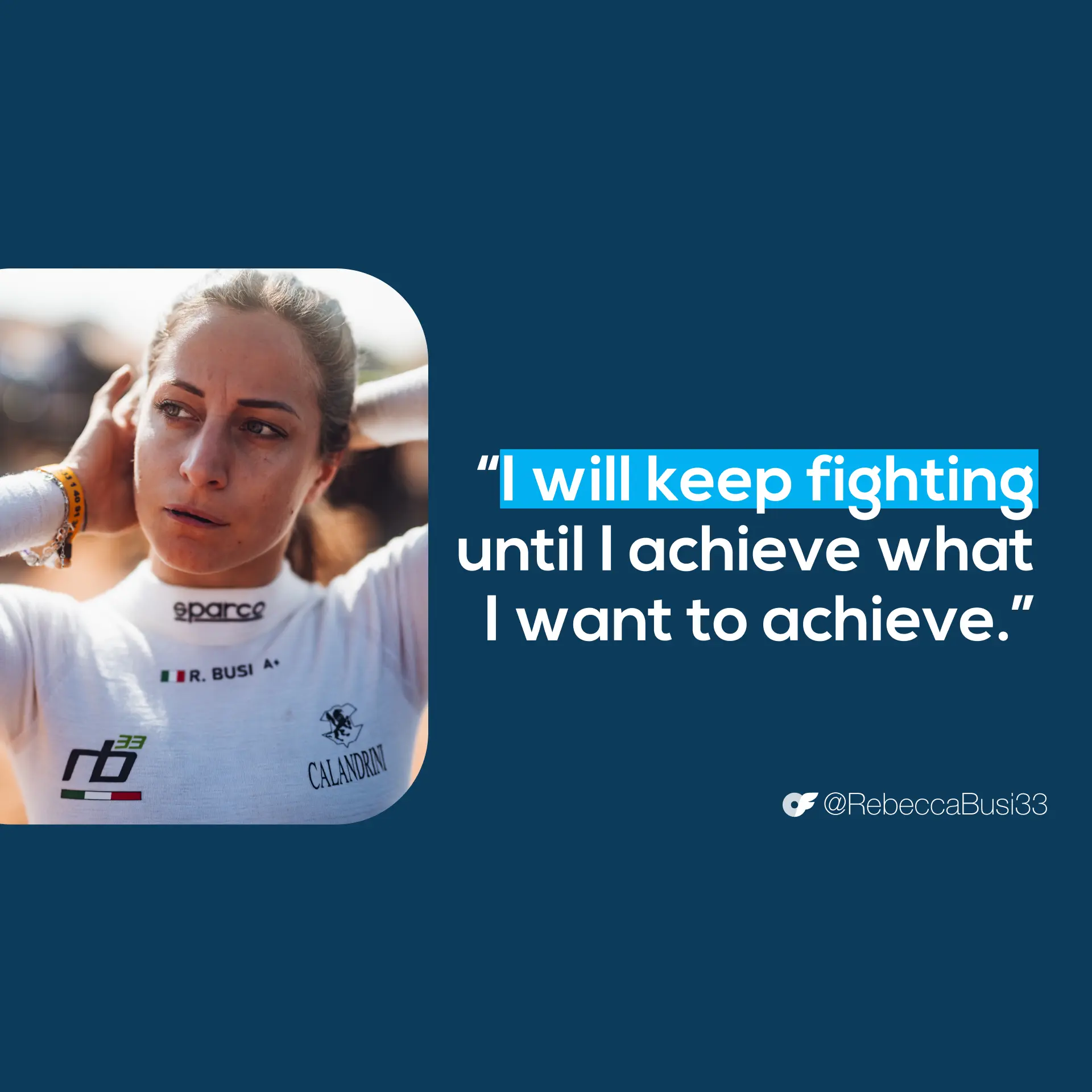
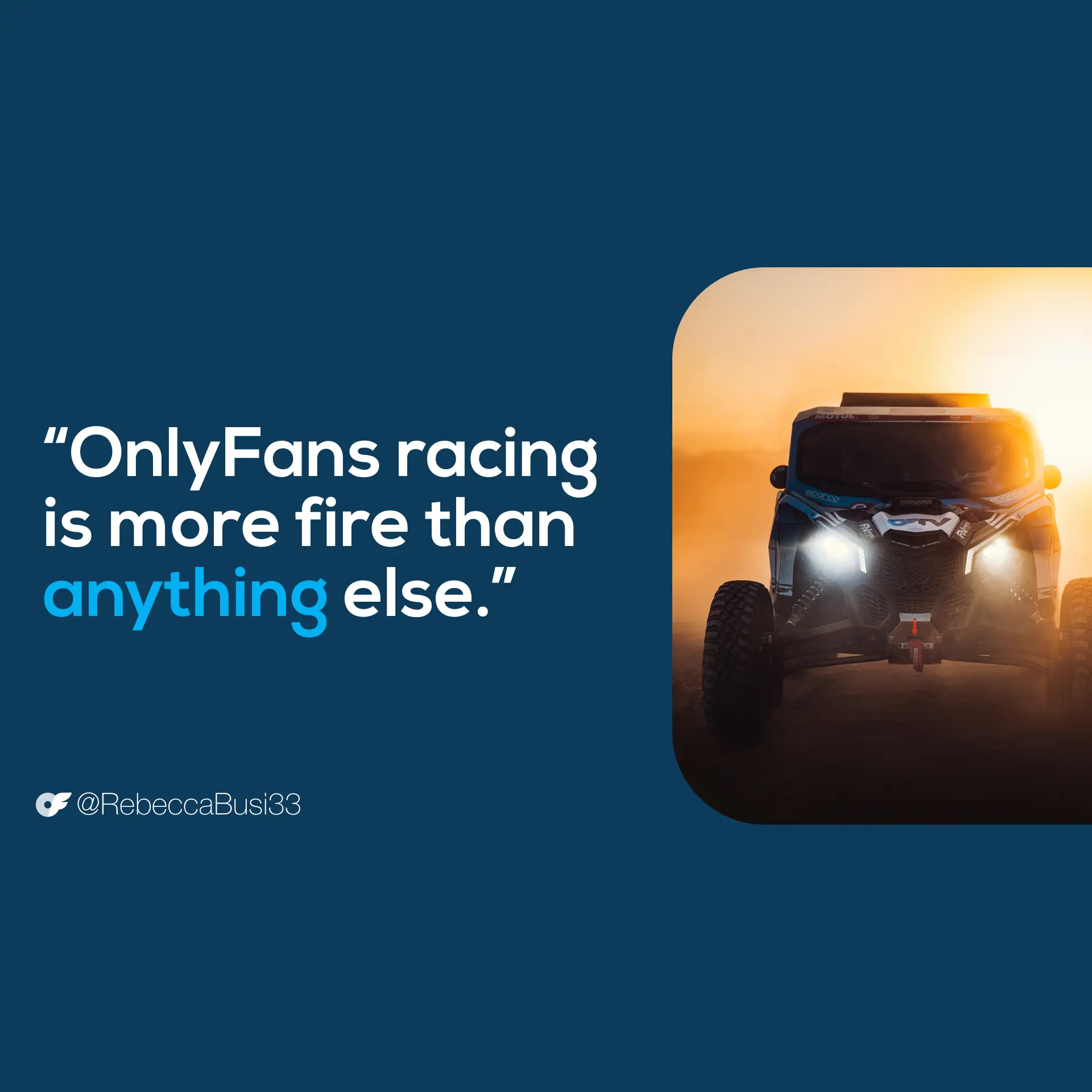
Any advice for newbie rally racers?
Be strong… not just physically, but mentally. Because it's going to be hard.
It's going to take all of you, and you're going to sacrifice a lot of the things that you love.
But if it's something that you really want, you are going to make it.
Will we be seeing you at Dakar 2025?
Yes. OnlyFans racing is more fire than anything else!





